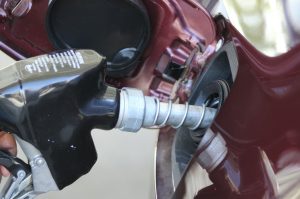Our job is to help teach people about becoming car brokers. To do so, we offer them our exceptional Business Package. It is a comprehensive suite of resources based on the success we’ve had in this field. Using them, you will learn about how to start and manage your own business. Everything you need is here, and we also provide fantastic support.
Car owners and enthusiasts take time to research various models. This includes their features and other things. But, certain details can confuse first-time owners or everyday motorists. One is the correct fuel for a vehicle. Using the wrong one can lead to some dangerous scenarios. If you are unsure about the multitude of fuel types, continue reading. We’ll look at all six so you know the differences.
Petrol
 Most cars run on this. It is a specialised fossil fuel designed for four-stroke engines, something found in standard cars. Advantages of petrol include it enabling your vehicles to start swiftly. Also, they are able to accelerate rapidly whilst working quietly.
Most cars run on this. It is a specialised fossil fuel designed for four-stroke engines, something found in standard cars. Advantages of petrol include it enabling your vehicles to start swiftly. Also, they are able to accelerate rapidly whilst working quietly.
On the other side, petrol contributes to pollution as it generates carbon dioxide. It also produces smog and is a global warming contributor.
To this day, petrol remains one of the most readily available fuels. However, the limited resources for production make it a non-renewable resource.
Diesel
If you intend to buy a truck or tractor, you would likely be utilising this fuel source. Transport motors such as trains, boats, trucks, and buses need diesel to run. Some private cars also use it.
Similar to petrol, diesel is a non-renewable fuel. It also generates organic compounds that result in smog. Furthermore, it still adds to pollution despite producing less carbon dioxide.
Propane or LPG
Some cars use propane or liquid petroleum. This acts as a clean fuel alternative to petrol. As a result, it doesn’t contribute to smog and has a lower cost.
The problem is only a limited number of car models make use of this fuel. Less than 1% of vehicles on the roads in the UK are LPG. So, many people are unlikely to ever encounter them. They are very rare for car brokers too.
Compressed natural gas
Called CNG for short, this is another environmentally friendly fuel solution that a few cars use. This is an odourless fuel too, and one that generates far less ozone-forming emissions than gasoline.
Again, the issue here is there are only limited CNG motors available in the UK. Many are fleet heavy-duty and light-duty vehicles that come with their own refuelling stations.
Ethanol
If you are seeking fuel made from renewable, natural products, this is it. Ethanol is a biofuel made from sugar cane, barley, and corn.
The thing to keep in mind here is that this fuel is often utilised more as an additive. For example, E10 is petrol that has 10% ethanol. Cars possessing a petrol engine are able to run ethanol blends such as E10 without modifications. What you should remember though is that you need to converse with your car dealer if you are considering this fuel type.
Biodiesel
As its name implies, this is a diesel substitute created using natural resources. Examples include animal products, palm oil, rapeseed, or sugar beet. It is a fuel that generates less carbon dioxide emissions than petrol or standard diesel.
Biodiesel may sound like a wonderful alternative. But, some engines can’t process it. Talk with the manufacturer prior to switching.
Successful car brokers use our modules
At Auto Car Brokers, we provide our Car Broker Business Package to help people in getting started. What we are offering is a comprehensive business in a box that teaches you all about broking. All you need to do is unpack it and you can be off to the races.
So, if the world of car brokers interests you, give us a call or browse our website for more info. Then, you can purchase our materials via the site if you’re ready to begin.







